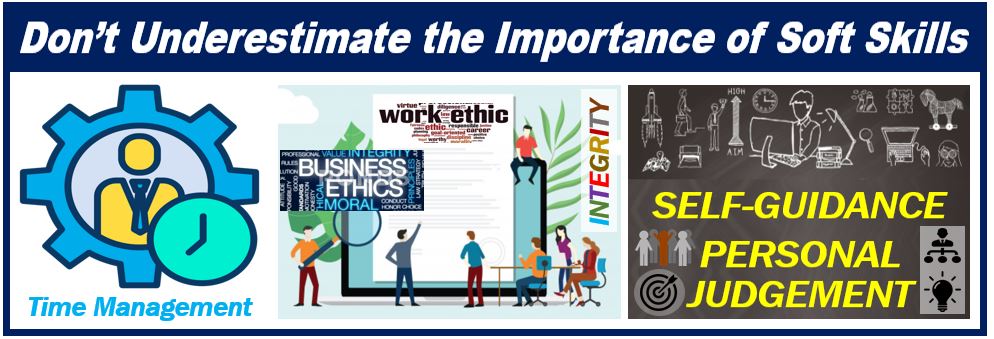In the 1960s, the US military came to a realization: in order to train disciplined, effective troops, they would need to teach more than just machine operation. A trooper who knows how to manoeuvre a tank, for instance, does not necessarily make a good leader. A soldier who can disassemble a rifle in under five minutes wasn’t necessarily prepared to manage their time effectively. So, they started teaching “soft skills” – essentially, skills that don’t pertain to machinery usage.

Before long, the business world caught wind of the term and popularized it. Soon, many institutions – from universities to charitable organizations, fast food chains to tech start-ups – embraced the term. For them, it succinctly described a missing “x-factor” in employees and members. And it underscored the importance of principles, communication, interpersonal abilities and emotional intelligence in groups of people.
To this day, soft skills remain a critical measure of one’s overall abilities, whether in the workplace or at school. In this post, let’s discuss three of the most important soft skills, as well as where to learn them.
Time Management
Time management is a critical soft skill, not just in the workplace or school, but also in daily life. Without the ability to manage your time effectively, you can get bogged down in unimportant tasks, lost in tangents or unable to meet crucial deadlines.
Time management is, effectively, the ability to view a task holistically – to understand the time it requires, then plot your journey toward the finish line in a way that makes sense. If you have a big school project due or a quarterly quota to hit at work, you want time management skills on your side.
Work Ethic
Employers often cite good “work ethic” as a requirement, but what exactly does that mean?
Simply put, work ethic is the belief that there is inherent value in hard work. That doesn’t mean you have to work toward a goal blindly, without the expectation of reward or remuneration. But it does mean that you value doing more than the minimum. You don’t feel the need to do a great job; you want to do a great job.
Self-Guidance
In general, employers, managers, professors, etc. don’t want to be on your case about getting work done. They want to be able to delegate a task or project and watch as you self-motivate.
Self-guidance is doubly important if you are trying for a leadership position yourself. With no one to steer you in a “right” direction, you need to ascertain the right direction through self-guidance and personal judgment.
Where to Learn Soft Skills

If you are looking to learn soft skills for post-secondary education or the workplace, consider online schools. Because of eLearning’s emphasis on self-paced learning, online schools like Ontario eSecondary School are great places to foster soft skills like time management and self-guidance.
And because online learning requires students to learn internal motivation (rather than the external motivation of a teacher’s physical presence), it also nurtures independence and work ethic. Whether you are a student currently in high school, or a professional looking to restart your education, consider an online school to nurture your soft skills.
Interesting related article: “What is e-Learning?“

